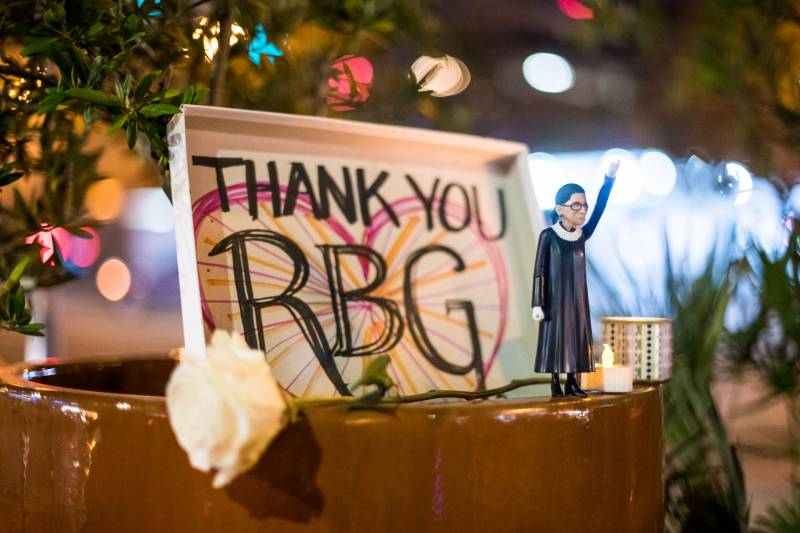Politics aside, states like California have a lot riding on who replaces Ginsburg. Stanford Law School professor Pamela Karlan said issues involving consumer rights, for example, could more easily be wiped away by a more conservative court.
“California has a lot of progressive laws and there are conservatives who would like to challenge a lot of those laws,” Karlan said. “And Ruth Bader Ginsburg was somebody who was not going to find preemption of state consumer rights issues or preemption of a state’s right to go to court.”
Karlan also said that issues involving immigration and immigrants’ rights, so important in a state like California, would also be at higher risk if the court shifts further to the right.
Women’s groups worry about the court striking down Roe v. Wade, the landmark Supreme Court ruling establishing a woman’s right to an abortion and preventing states from banning the procedure outright. The future of LGBT rights, the fate of the Affordable Care Act and even potential legal issues emanating from the November election could also be determined by a sharply more conservative court.
UC Berkeley Law Professor Amanda Tyler clerked for Ginsburg and is writing a book based on an on-stage conversation with her last fall. Asked what kind of person she thought Ginsburg would want as a replacement, Tyler initially said, “It’s impossible to fill her shoes. She was a legend.”
But, Tyler added, “if she were able to speak to it, she would say probably that she would want somebody who believes that the Constitution was a document for all of us, that the story of our Constitution is a story of being ever more welcoming and inclusive. And that we have to constantly be vigilant about working to ensure that we are building a more perfect union.”
Tyler went on to say she was concerned about how a bitter confirmation process would affect the court.
“I think it’s important for the institution that is the Supreme Court that it not be the central issue in this election,” Tyler said. “I realize that with her passing, that is in some respects almost inevitable, that it will be a major issue. But I think that (Ginsburg), like all the justices, would prefer to keep the court as insulated as possible from politics. Again, that is also not entirely possible.”
Democratic presidential nominee Joe Biden echoed many Democrats Friday, including Harris, his running mate, and Feinstein, in saying no one should be nominated before the presidential inauguration in January. Biden chaired the Senate Judiciary Committee during the contentious confirmation hearings for Clarence Thomas.

